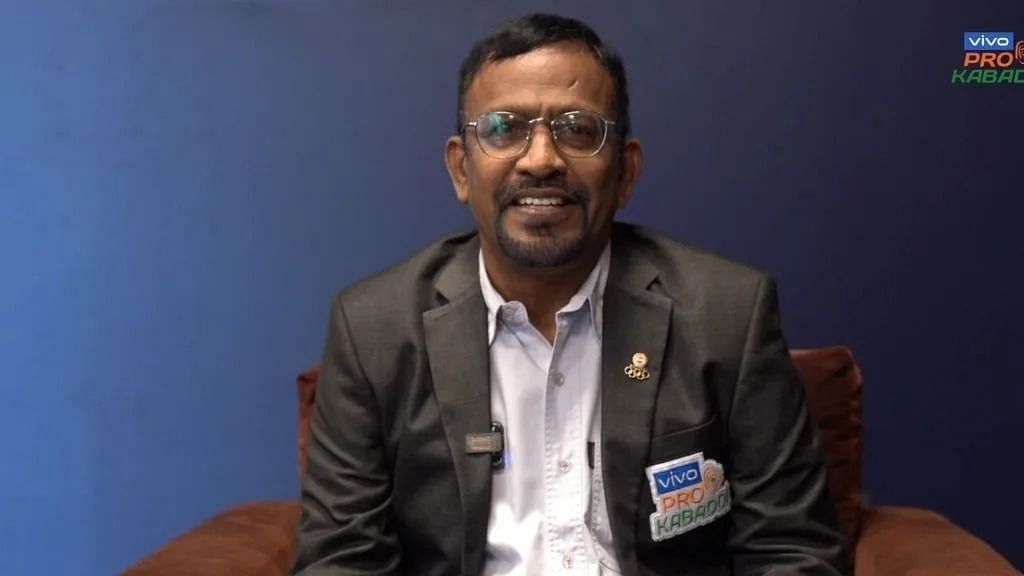
“PKL will have more players from other countries in upcoming years” - Pro Kabaddi League technical director E Prasad Rao
After an intense three months of action, the Pro Kabaddi League 2023 is all set to have its grand finale on Friday, March 1, between Puneri Paltan and Haryana Steelers.
Since the inception of the inaugural PKL season in 2014, the competition has made giant strides in reshaping the landscape of the sport. The league has revolutionized the way Kabaddi is played, introducing stunning innovations to make the game interesting for budding players and fans.
In 2017, the addition of four new teams injected more excitement and interest into the league. This expansion made the competition one of the biggest sporting leagues in the country in terms of geographical representation.
Sportskeeda had an opportunity to speak with the PKL technical director, E Prasad Rao to delve into the league’s evolution and how these outstanding innovations have transformed the sport for both players and fans of the game.
The addition of foreign players spiced up the PKL since the inaugural edition. Prasad added that the players from other countries like China will also be a part of the league in the coming editions, courtesy of Chinese Taiper’s impressive performance in the Asian Games.
“Currently, several teams have decided to play two to three foreign players together. This is a franchise decision. Although we have players from other countries, not all of them are at that level, and the franchise cannot play them. Despite this, we have made it mandatory to keep two foreign players in the squad and at least one foreign player in a 14-member team," Prasad Rao said in an exclusive chat with Sportskeeda.
"Players from other countries are working on their game, and in the coming days, more players and countries will participate, which could lead to changes. For instance, in this year's Asian Games, Chinese Taipei performed well, and their players might be seen playing in the upcoming seasons,” he added.
PKL’s role in referee training
Prasad Rao went on to elaborate on the PKL’s commitment to referee training from the inaugural season to the seventh edition.
He added that the trained referees went on to represent on the international level and the league would be aiming to find more young talent in the coming years.
“The Pro Kabaddi League (PKL) has not only provided training but also opportunities to international referees from season one to seven. Among the referees we have trained, there are quite a few who are receiving opportunities at the international level. Some may have retired or moved on to other jobs," he stated.
'PKL has always aimed to elevate the level of refereeing. The amount of training we provide to Indian referees is unmatched in any other sport. This time, we have brought in 10 new referees, providing them with training and selecting those who have passed the AKFI referee test. In the future, we may see more and more young referees joining our ranks.” Prasad Rao continued.
PKL has gone through a lot of changes since its inception. The way the sport is played has been changed through the league, thanks to the impressive innovations made throughout the competition's history.
“Before the Pro Kabaddi League (PKL), Kabaddi was completely different, and the rules were also quite different. Now, PKL has become an international-level game. Previously, there was no control in the raid zone and the raider could do anything. However, that's not the case anymore, and a raider now has 30 seconds in the raid zone,” Prasad Rao said.
“Earlier, there was no concept of "Do or Die" raid, but now a raider cannot attempt more than three empty raids. Because of this, the importance of balance has increased, and teams need good raiders along with defenders,” he went on to add.
Additionally, PKL has played a pivotal role in providing the raiders and defenders with equal recognition, with the addition of Super Tackles.
Moreover, he emphasized that the league is expected to witness further innovations in the coming editions, ensuring continued excitement and evolution of the sport.
“In kabaddi, raiders used to earn fame and awards, but after PKL, defenders and raiders have become equal. If three or fewer defenders execute a super tackle, they get two points. If there are 4-5 super tackles in a match, the course of the match changes. There's diversity in the game, and competition has intensified. Kabaddi is witnessing continuous action, and it keeps going on incessantly,” he asserted.